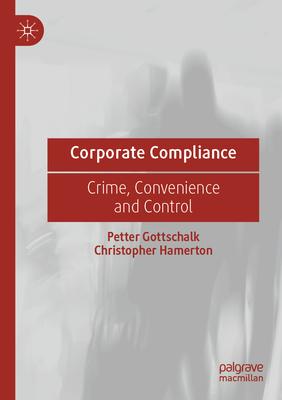Compliance has long been identified by scholars of white-collar crime as a key strategic control device in the regulation of corporations and complex organisations. Nevertheless, this essential process has been largely ignored within criminology as a specific subject for close scrutiny -Corporate Compliance: Crime, Convenience and Controlseeks to address this anomaly. This initiating book applies the theory of convenience to provide criminological insight into the enduring self-regulatory phenomenon of corporate compliance. Convenience theory suggests that compliance is challenged when the corporation has a strong financial motive for illegitimate profits, ample organisational opportunities to commit and conceal wrongdoing, and executive willingness for deviant behaviour. Focusing on white-collar deviance and crime within corporations, the book argues that lack of compliance is recurrently a matter of deviant behaviour by senior executives within organisations who abuse their privileged positions to commission, commit and conceal financial crime.
| FindBook |
有 1 項符合
Corporate Compliance: Crime, Convenience and Control的圖書 |
 |
Corporate Compliance: Crime, Convenience and Control 作者:Gottschalk 出版社:Palgrave MacMillan 出版日期:2023-11-02 語言:英文 規格:平裝 / 378頁 / 普通級/ 初版 |
| 圖書館借閱 |
| 國家圖書館 | 全國圖書書目資訊網 | 國立公共資訊圖書館 | 電子書服務平台 | MetaCat 跨館整合查詢 |
| 臺北市立圖書館 | 新北市立圖書館 | 基隆市公共圖書館 | 桃園市立圖書館 | 新竹縣公共圖書館 |
| 苗栗縣立圖書館 | 臺中市立圖書館 | 彰化縣公共圖書館 | 南投縣文化局 | 雲林縣公共圖書館 |
| 嘉義縣圖書館 | 臺南市立圖書館 | 高雄市立圖書館 | 屏東縣公共圖書館 | 宜蘭縣公共圖書館 |
| 花蓮縣文化局 | 臺東縣文化處 |
|
|
圖書介紹 - 資料來源:博客來 評分:
圖書名稱:Corporate Compliance: Crime, Convenience and Control
內容簡介
作者簡介
Petter Gottschalk is Professor in the Department of Leadership and Organizational behaviour at BI Norwegian Business School, Norway.
Christopher Hamerton is Deputy Director of the Institute of Criminal Justice Research in the School of Economic, Social and Political Sciences at the University of Southampton, United Kingdom.
|











